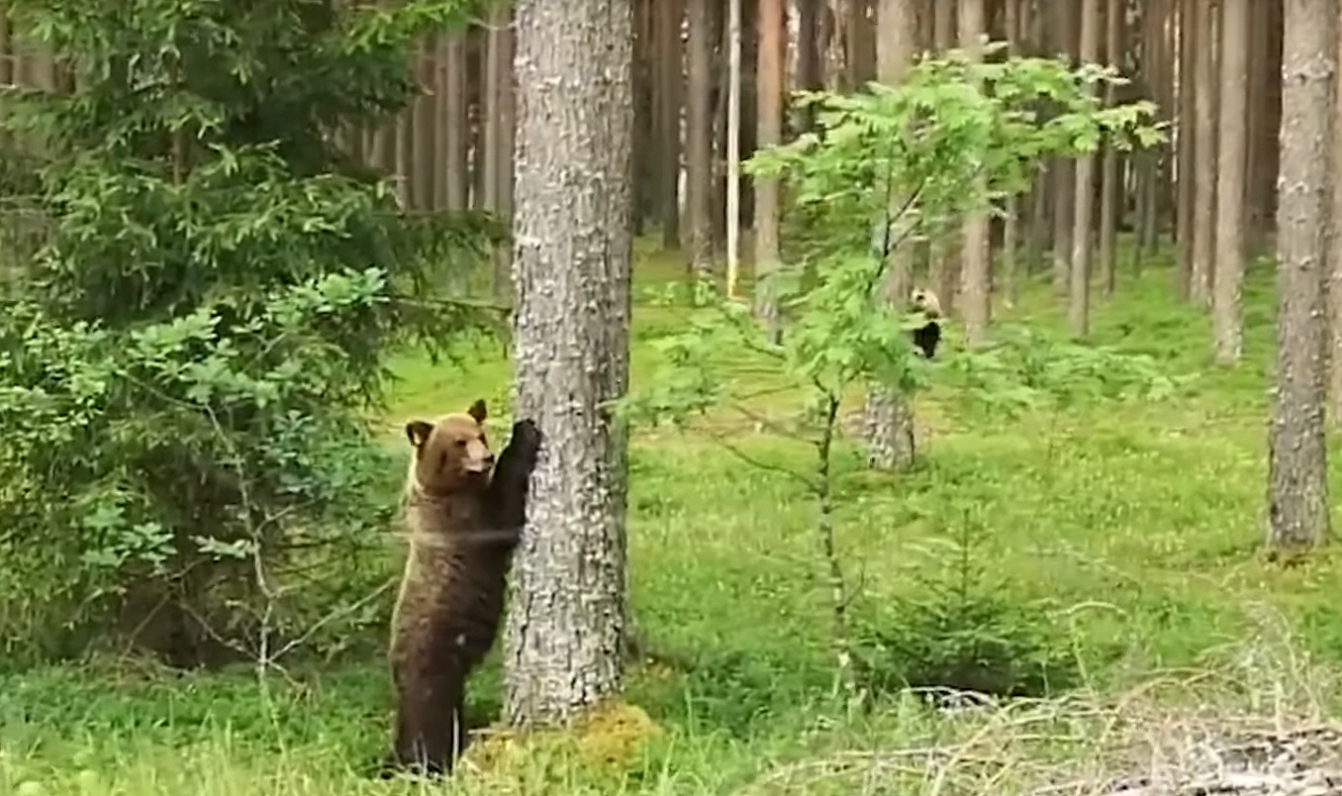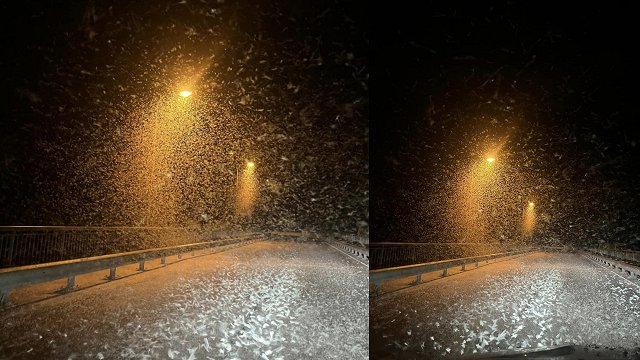"In order to prevent the threat to the public, according to the action plan approved by the interdepartmental expert task force, on April 1, 2022, the brown bear (Ursus arctos) regularly seen on the side of the road in Gulbene region has been euthanized," the DAP said.
The bear was first spotted on the roadside near Lejasciems Parish in Gulbene District, later moving to the main Smiltene-Gulbene highway, where it quickly became a frequent sight for passers-by. Unfortunately someone or several people also started leaving food for it by the roadside, encouraging it to return to the same location repeatedly.
As previously reported by LSM, the public had been urged not to feed bears in the wild.
An ear tag and DNA samples showed that it was one of two bears that were moved to a remote location last autumn precisely because they were foraging close to inhabited areas. Experts had hoped that after winter hibernation they might become less bold and acquire the necessary independent survival skills by finding food in the forest instead of on farms.
"Unfortunately, the fate of this bear was decided by the part of the society that, ignoring the warnings and recommendations of specialists, as well as endangering the health and safety of themselves and other people, brought carrots, apples, even chips and candies to the bear. The bear was a hostage to the situation," said DAP director Gita Strode.
"I am unpleasantly surprised that there were even people who deliberately provoked the bear into aggressive behavior. And at the same time, I am very sad, because I know how much work has been put into this by colleagues, non-governmental organizations and other institutions and bodies to enable the animal to adapt to life in the wild. Unfortunately, the short-term thinking of a part of Latvian society forces us to see cheap popularity on social networks, forgetting the fact that we have to take responsibility for what we are doing. A fed bear is a domesticated bear! However, none of the feeders is willing or able to take responsibility."
Unfortunately, as a result of feeding by humans, the bear had lost any survival skills as the wild animal, and in addition was no longer afraid of human noise or even cars. Thus, there was a direct threat to public safety, namely that the animal could cause a road accident or, if provoked by human activity, go in search of food not only to rural homesteads but also to densely populated areas.
National biodiversity monitoring data show that in recent years the number of bears has been increasing in the Baltic states, which means that more bears are entering Latvia from Estonia and some are staying. In the past, hunting was the main reason for the decline and disappearance of bears. As they are now not allowed to be hunted Latvia and hunting on the Estonian border is restricted, the bear population is recovering. According to current monitoring data, there are about 60 bears in the wild in Latvia.




























